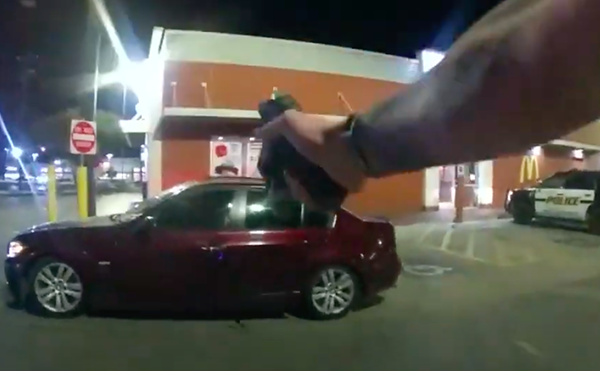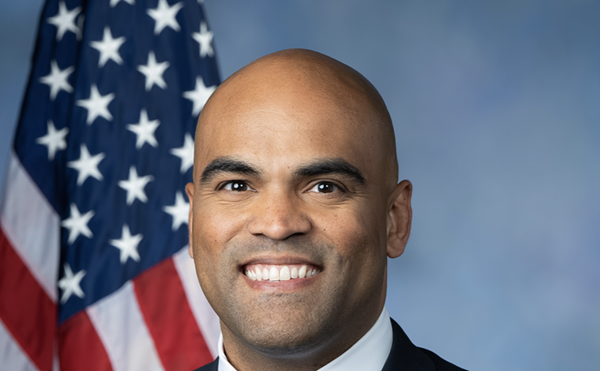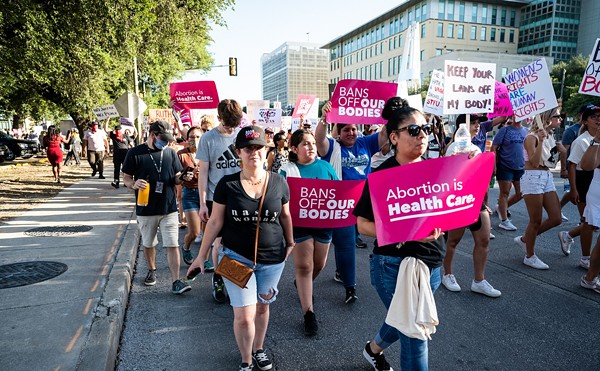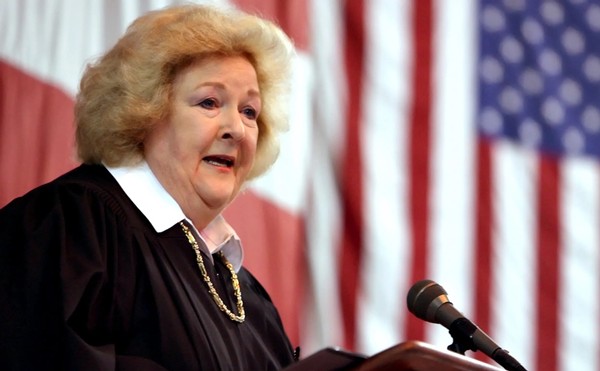|
It's a secret If Congress passes a transportation bill, San Antonians could be forbidden to know what - or if - hazardous materials are rolling through town Buried in section 4439, page 1,001 of the proposed transportation bill, a 1,381-page behemoth that addresses everything from highway funding to motorcycle crashes to bus axle weight exemptions, lies a brief provison that could affect San Antonians wanting to learn more about hazards caused by train derailments. HR 3550, also known by the cumbersome title, "The Safe, Accountable, Flexible, and Efficient Transportation Equity Act of 2004" would endow the federal government with broader powers to withhold "sensitive" information from the public about the transport of hazardous materials. The bill leaves open to interpretation what qualifies as "sensitive."
The House version of the bill didn't include the secrecy provisions, which were inserted by the Senate at the behest of the Bush administration over national security concerns. Texas Senator John Cornyn voted for the amended bill; Kay Bailey Hutchison voted against it. The House and Senate are ironing out their differences in conference committee. U.S. Representative Charlie Gonzalez, who voted for the House version, said that although some precautions must be taken to prevent terrorists from obtaining information about hazardous cargo, the current language "goes too far." "You have to balance competing interests, including those of national security. But the language is too broad." Alan Roberts of the Washington, D.C.-based Dangerous Goods Advisory Council could not be reached by phone, but on June 27, the Louisville Courier-Journal reported that Roberts "doesn't believe the effect of the secrecy language will be as broad as open-records advocates warn, but that the bill's wording allows the government more leeway in determining what information can be kept secret." The Dangerous Goods Advisory Council represents the transportation industry, including rail and highway shippers. Roberts used to be the head of the Department of Transportation's hazardous materials program. In addition to hazardous chemicals, Texas' rails and highways also could carry radioactive waste en route to a West Texas dump or to Nevada. Margot Clarke of the Sierra Club and the Texas Radioactive Waste Defense Fund said the secrecy provisions jeopardize public safety, rather than protect it. "It is absolutely essential to well-being and safety of communities to have access to information about what is traveling through their railroads and highways and what's passing their schools and homes and community centers," Clarke said. "To imply that it's in the interest of the public to keep this secret is completely the opposite of what's true. There is no way for communities to know what they're up against if they don't have access to information about what's on trucks and railroad cars." It is notable, although not surprising, that the secrecy provisions were added to a large spending bill that provides funding for Congress' pet highway projects - which are important to pass, particularly in an election year. "The truth is, there will be provisions in a bill that benefits your district, and there will be one paragraph that you don't like, but you still vote for it," said Gonzalez, who is signing onto another bill that calls for hazardous material to be transported on alternate routes. "It's still overall in the best interest of the district." Stephanie Smith, Gonzalez' legislative aide, added that the conference committee is still squabbling over appropriations in the $318 billion transportation bill, and hasn't broached the national security language. "It can't work out the money, let alone the secrecy provisions." • By Lisa Sorg
|

















